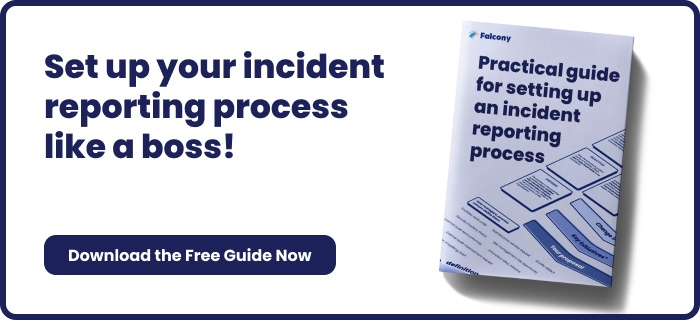How Managers Should Treat Their Own Failures And Mistakes
Leadership is no easy undertaking, and leaders and managers can often feel that all the pressure of their business rests on them. This can make it sometimes difficult to admit failures and mistakes. Ego, personal agendas and office politics can also stand in the way of acknowledging and learning from failures.
But, to be a brilliant and accountable leader, you need to dive straight into your mistakes - avoiding the desire to run swiftly away from them.
Of course, it is easier said than done, but this blog post covers some simple techniques you can adopt to face failures head-on!
Admit Your Mistakes
You're a human, so you're bound to make mistakes. When that happens, don't try and hide them or avoid them. Instead, acknowledge your faults openly and courageously.
You can weigh the seriousness of the issue, and decide on the extent of the acknowledgement. If it’s a small issue, you can admit it to yourself and deal with it on your own. For bigger issues, make sure to inform the relevant people that need to participate in the repercussions.
Learn From Them
It's one thing to admit you are wrong and a whole different thing to make sure not to repeat that mistake. Great leadership means analysing previous mistakes, incidents and near misses and finding value and lessons from them.
Yes, you don’t want to repeatedly make the same mistakes, but you also want to change how you view failures.
It’s not a flop, it’s an opportunity for improvement and development. Thus, it’s vital to reflect, learn and take action!
Share Lessons Learned
As a leader, your relationship with your workers needs constant care. As in any relationship, there is power in honesty and transparency. These qualities are an essential part of being a good coach, leader and educator for your team.
Share the mistake made, the process of working through it, and the consequent actions taken to deal with it. This way, your team will be able to trust you more and you can cultivate a positive working environment.
Why Is This Important?
There are many reasons why it’s valuable to approach mistakes more positively. These are a few benefits you can gain from positive mistake management:
- You earn respect
- You develop a better culture of honesty & vulnerability
- You set a brilliant example
- You promote transparency, accountability, and workplace feedback
- You stand to improve communication with your fellow colleagues
- You motivate trust and can build a stronger team
Mistakes doesn't only humanise you more to the people you work with. It also shows strength, humility and can help you learn and grow as a person as well as a professional.
Final Thoughts
Knowing how to treat your own failures and mistakes as a leader improves your leadership and self-reflexivity. It also has positive effects on your employees or colleagues, improving communication, and valued qualities like accountability and trust.
Although admitting your faults is a good place to start, you should aim to implement change and take action from the lessons learned.
Utilise an incident reporting platform to help with reporting, analysing, and resolving issues, as well as to facilitate better communication and understanding of reporting failures. This way, you not only grow as a leader, but your organisation grows too by simply admitting, “Yes, that was my mistake!”
As we can see, knowing how to treat and accept failures plays a big role in tuning the right tone for the leadership culture in your organisation. But if you are working with safety related matters, setting up proper safety metrics and KPIs is even more important. If you want to learn more about them, check our FREE guide:
We are building the world's first operational involvement platform. Our mission is to make the process of finding, sharing, fixing and learning from issues and observations as easy as thinking about them and as rewarding as being remembered for them.
By doing this, we are making work more meaningful for all parties involved.
More information at falcony.io.

Related posts
From slips and lapses to knowledge-based mistakes: A summary of 'Field Guide to Understanding Human Error' by Sidney Dekker
Hey there safety manager! Are you looking for a book that explains why all of us (even the best of...
5 reasons Why Blame Game Is Lame
Research has shown that we expect others to play the blame game rather than own up to their...
How To Reduce The Organisational Fear Of Failure
Incident reporting in the workplace may be a source of anxiety for many people. However, this is...





